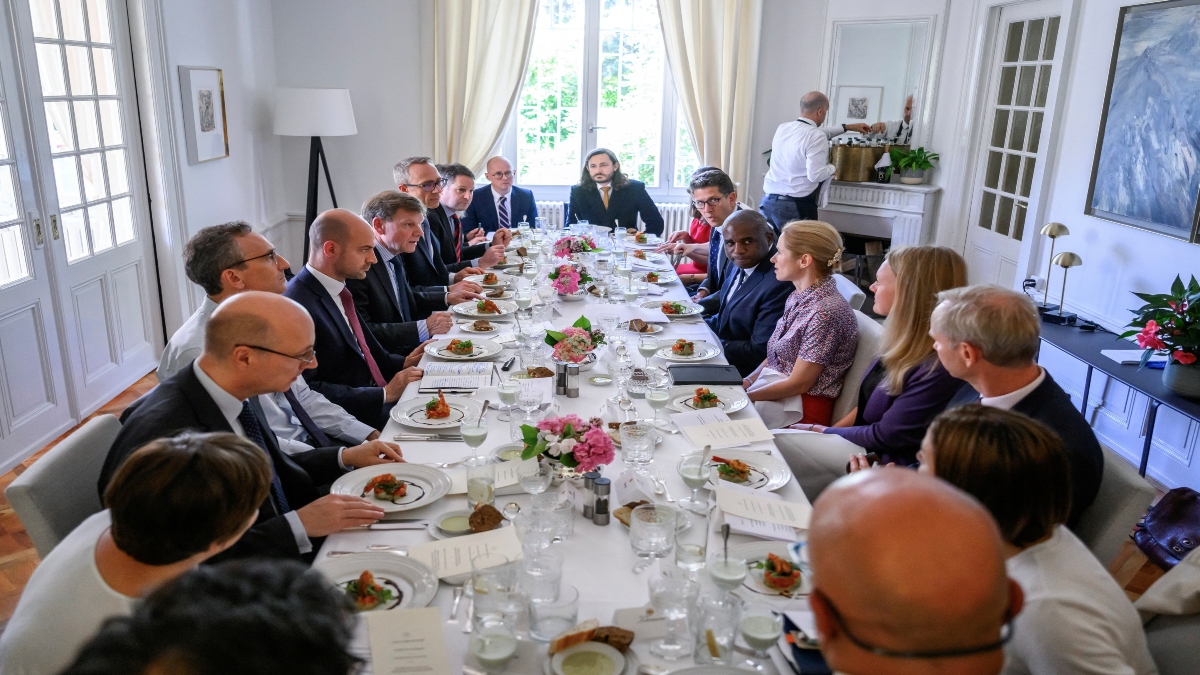European foreign ministers met their Iranian counterpart on Friday to gauge Tehran’s willingness to restart nuclear talks, despite little expectation that Israel will halt its strikes anytime soon, according to a Reuters report, citing diplomats.
Ahead of the meeting, the ministers consulted US Secretary of State Marco Rubio, who indicated that Washington remains open to direct talks, even as it weighs joining Israeli military action aimed at crippling Iran’s nuclear capabilities, the report added, citing sources.
While the US has not officially confirmed this stance, CNN quoted an American official saying President Donald Trump supports diplomatic efforts by allies to bring Iran back to the negotiating table.
“The Iranians can’t sit down with the Americans whereas we can,” Reuters quoted a European diplomat as saying.
“We will tell them to come back to the table to discuss the nuclear issue before the worst-case scenario, while raising our concerns over its ballistic missiles, support to Russia and detention of our citizens,” the diplomat added.
The foreign ministers of Britain, France, and Germany (the E3), along with the EU’s foreign policy chief, met in Geneva on Friday ahead of talks with Iranian Foreign Minister Abbas Araqchi.
Under pressure to accept strict limits on its nuclear programme, Tehran has insisted it won’t engage with the Trump administration until Israeli attacks stop.
European diplomats, however, said they don’t expect a ceasefire soon and see little chance of US-Iran talks resuming in the short term, reported Reuters.
As a result, the E3 aimed to test Iran’s willingness to negotiate directly with them.
Impact Shorts
More ShortsTheir proposal involves launching parallel talks, initially without the US, focusing on tougher inspections and possibly including Iran’s ballistic missile programme, while allowing limited uranium enrichment.
With tensions rising, both sides hoped to reach a basic political framework and secure concessions, including a ceasefire, before deeper negotiations. Still, one European official cautioned that prospects remain dim due to Iran’s resilience and the E3’s far-reaching demands.
Enrichment differences
The Trump administration is demanding Iran stop uranium enrichment altogether, whereas the E3 have in past talks left it some scope to enrich for civil ends in exchange for extremely strict international inspections.
On Friday, French President Emmanuel Macron shifted closer to Trump’s position, saying that any new deal with Tehran needed to go towards zero enrichment.
A senior Iranian official told Reuters Iran is ready to discuss limitations on its uranium enrichment but said the prospect of zero enrichment would undoubtedly be rejected, especially while Israel was attacking.
In a speech at the United Nations in Geneva before the E3 meeting, Araqchi accused Israel of a “betrayal of diplomacy”, while Israel’s envoy in Geneva raised a “vehement objection” to the minister addressing the U.N.’s Human Rights Council.
Geneva was the scene of an initial accord between Iran and world powers to curb its nuclear programme in return for sanctions lifting in 2013 before a comprehensive deal in 2015.
Separate talks between Iran and the U.S. collapsed when Israel launched what it called Operation Rising Lion against Iran’s nuclear facilities and ballistic capabilities on June 12.
French Foreign Minister Jean-Noel Barrot spoke to Rubio on Thursday night, during which Rubio said Washington was ready for direct contact with the Iranians, a diplomatic source said.
The main message Europeans will pass to Araqchi is that the US has signalled readiness for direct talks, but that Iran must give a serious signal, two European diplomats said, without defining what the signal should be.
While diplomats did not expect a breakthrough in Geneva, they said it was vital to engage with Iran because once the war stopped the nuclear issue would remain unresolved given that Tehran would still retain the scientific know-how.
Trump has said he will decide within two weeks whether to join Israeli strikes.
With inputs from agencies
)